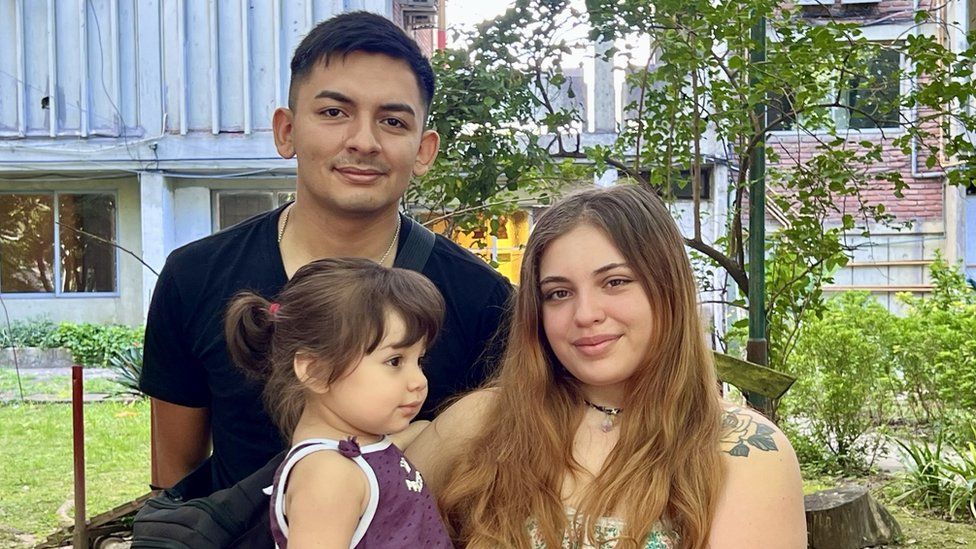-

-
-
Loading

Loading

Argentina, once one of the world's wealthiest nations, is now facing a severe economic crisis. The country was prosperous primarily due to its beef exports, particularly to Britain, over a century ago. However, it currently ranks around 70th in terms of wealth, according to the latest World Bank data. As a result, a growing number of Argentinians cannot afford to consume the beef that their nation is famous for. Oriana and Samir, a young couple in Buenos Aires, confess that they can only afford chicken as it is cheaper. The situation is worsened by the soaring inflation rate, which reached 211% last year, causing prices to rise rapidly. Food costs, rent, electricity, and transportation expenses continuously increase, making it challenging for families like Oriana and Samir's to make ends meet. Samir, who works as a delivery driver, faces reduced demand due to the economic crisis, leading to declining earnings. Moreover, he worries about rising desperation among people, as crime rates surge, fearing that someone might attack him for his cell phone. Official government figures indicate that at least 40% of the population lives in poverty, although many believe the actual number is higher. Oriana and Samir, like many others, voted for Argentina's new leader, Javier Milei, a radical right-wing libertarian who won more than 55% of the vote in last year's election. They believe that Milei understands the country's problems and is well-suited to address the issue of inflation. However, not everyone shares this sentiment. Claudio Paez, a former successful businessman, has experienced a decline in his revenue and the number of his shops due to rising costs and decreased disposable income. Paez worries that if the economic problems persist for a few more months, he will struggle to cover his expenses. Consequently, more Argentinians are forced to adapt and find unconventional ways to survive. Street vendors, delivery app riders, and unofficial taxis flood the streets of Buenos Aires, where almost half of the workforce operates in the informal sector. Additionally, a law passed before the election exempted numerous individuals from paying income tax, further hindering the country's efforts to generate income. Argentina spends more money than it earns and is burdened with a staggering debt of approximately $44 billion to the International Monetary Fund, making it the organization's largest debtor. President Milei, an economist who advocates for free markets and limited government intervention, aims to address the economic crisis. He devalued the Argentine peso by half to enhance competitiveness, reduced the number of government ministries, and currently has a proposal called the "Omnibus" bill before Congress to tackle public spending. However, Milei lacks a majority in Congress and faces opposition from powerful trade unions, who organized a recent strike and protest. Analysts suggest that although the public voted for change, they may not support Milei's libertarian approach. Congress will soon vote on the president's plan, but its approval is uncertain, and even if passed, its impact on inflation remains uncertain. Time is running out for President Milei to turn the situation around and improve the lives of Argentinians who are deeply affected by the financial crisis.